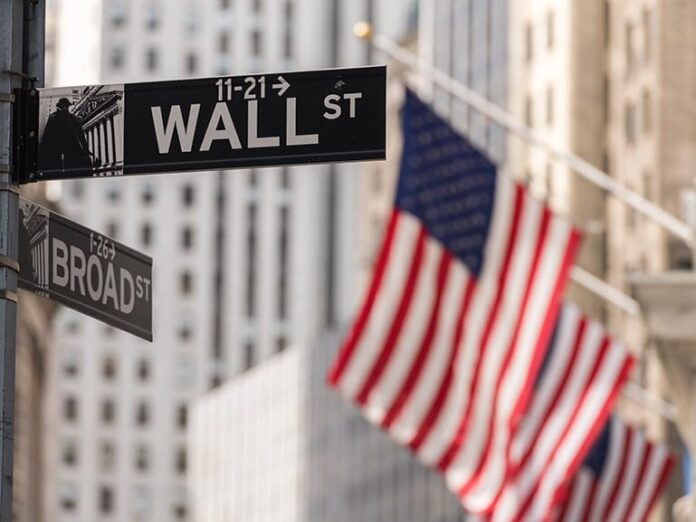U.S. stocks plunged for a third consecutive trading day, with the Dow Jones Industrial Average tumbling more than 1,200 points, amid growing fears of an economic downturn sparked by a sharp slowdown in hiring and weakening consumer spending.
The S&P 500 slid 129 points, or 2.4%, to 5,217 in early afternoon trading, while the tech-heavy Nasdaq Composite sank 2.9%. Investors are fleeing the Big Tech names that until recently had powered the U.S. market higher: Apple shed 4.2% while Meta fell about 2% in afternoon trading. Chipmaker Nvidia tumbled 5.6%.
The Dow Jones Industrial Average tumbled 1,238 points in early trade but pared some of those losses by early afternoon, when it was down 800 points, or 2%, as of 12:05 p.m. Eastern Time.
The markets regained some of their early losses as Wall Street digested Monday data from the Institute for Supply Management (ISM) Services index, which showed that service employment picked up in July.
“The details of the ISM report were encouraging, with business activity, new orders and employment all rebounding markedly in July,” Oxford Economics said in a Monday research note. The report “aligns with our view of an economy in transition rather than one on the brink of collapse.”
Stocks began dropping after weak reports on manufacturing and construction, which stoked fears the U.S. economy may finally be buckling under the pressure of high interest rates.
Then on Friday, government data showed that hiring last month was weaker than expected, adding to Wall Street’s fears that a “soft landing,” in which the U.S. economy could avoid a recession despite the highest interest rates in 23 years, could instead become a hard landing.
“The main factor that has staying power is the economy’s slowdown,” wrote Wells Fargo head of global investment strategy Paul Christopher in a report. “Investors have been watching household financial stress build for the past two years, but during that time, job growth remained above its December 2009-December 2019 average of 180,000 new jobs per month.”
But Friday’s jobs report showed that employers added only 114,000 new jobs last month, far fewer than the 175,000 jobs expected by economists, he noted.
Tech stocks have been hit particularly hard in recent weeks as investors pull back from artificial intelligence companies amid questions about when the emerging sector will deliver profits.
“It has been a tough few weeks for the AI group as earnings were reported,” analysts with Melius Research wrote. ‘Microsoft, Meta, Google and Amazon were all asked about payoffs from AI investments. While pretty clear that they all need to keep spending, the market remains skeptical of the pace.”
—With reporting by the Associated Press and CBS

